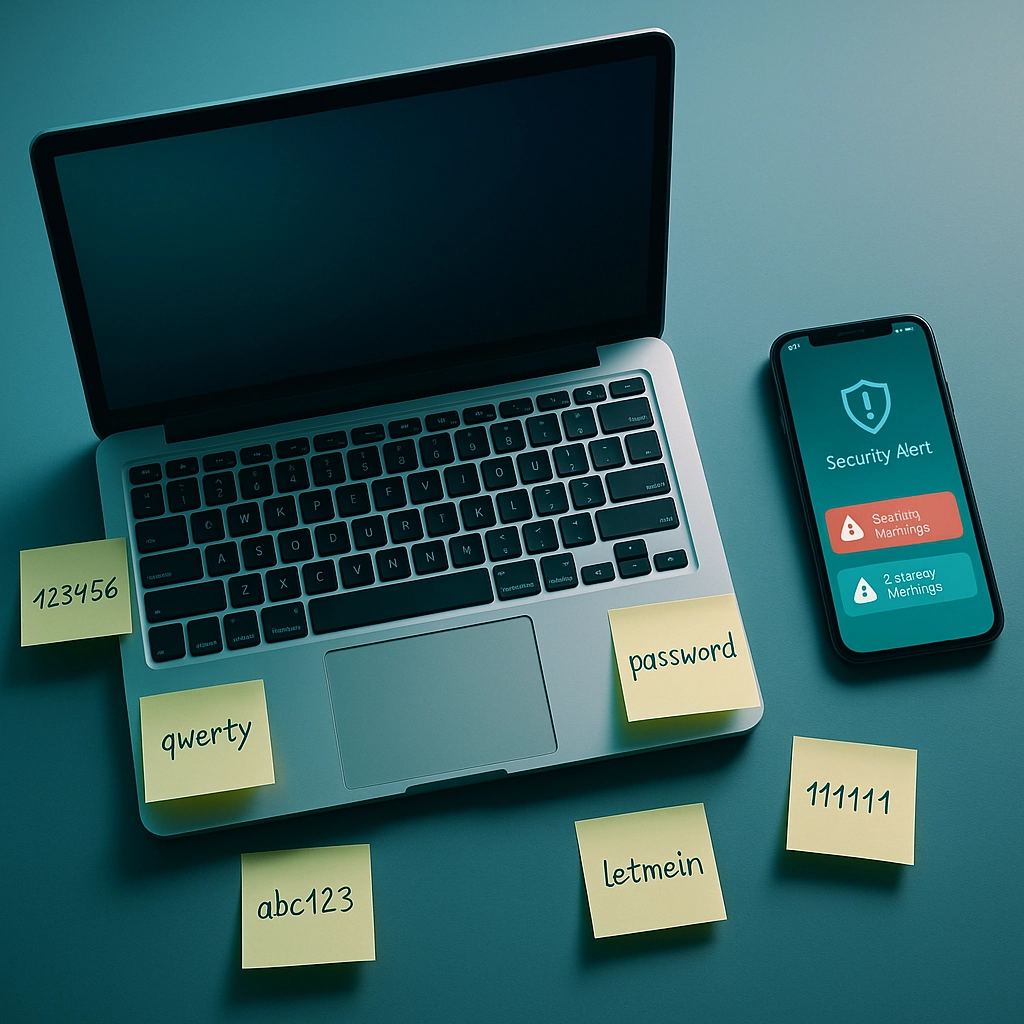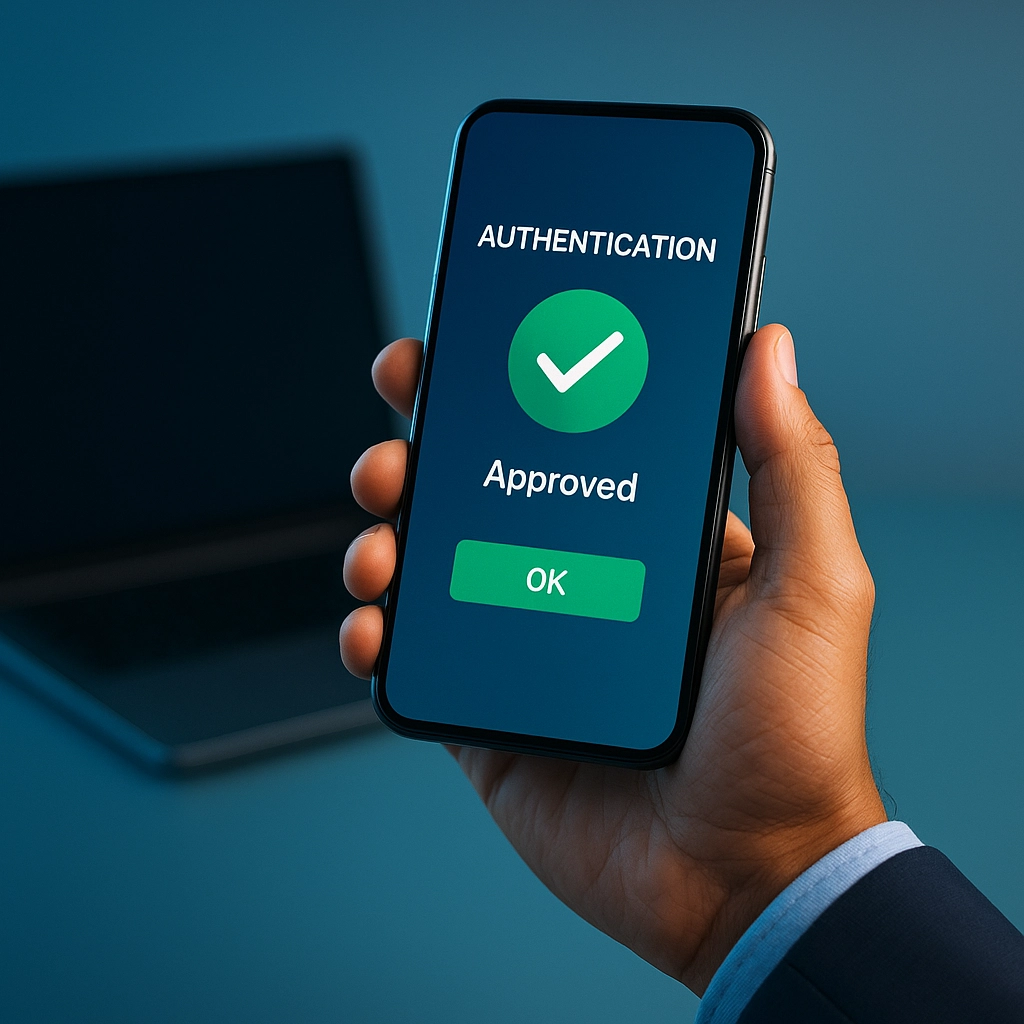Do You Really Need Multi-Factor Authentication? Here's the Truth About Why 70% of Small and Medium Businesses Skip This Critical Defense
- Jahmar Childs
- Sep 2, 2025
- 5 min read
Here's a question that keeps Chicago business owners up at night: "Do I really need multi-factor authentication, or is it just another tech expense I can put off?"
The short answer? You absolutely need it. And here's the uncomfortable truth: while 70% of small and medium businesses are still skipping this critical defense, cybercriminals are counting on exactly that hesitation.
Let's break down why so many businesses are leaving their digital doors wide open, and more importantly, how you can lock them down without breaking your budget or driving your team crazy.
Why Small and Medium Businesses Skip MFA (And Why Those Reasons Don't Hold Up)
"It's Too Complicated"
This is the number one excuse, and honestly, it made sense five years ago. Early multi-factor authentication systems were clunky and required IT expertise to set up. But today's solutions? Most can be deployed in under an hour with step-by-step guides that anyone can follow.
"We're Too Small to Be Targeted"
This myth has cost Chicago businesses millions. Here's the reality: 61% of small and medium businesses were targeted by cyber attacks in 2021. Criminals specifically hunt for smaller companies because they assume you have weaker defenses. You're not flying under the radar: you're painted with a target.

"Our Passwords Are Strong Enough"
Even if your team uses perfect passwords (which they don't), 81% of data breaches still involve compromised credentials. Hackers don't just guess passwords: they buy them from previous breaches, use social engineering, or deploy sophisticated phishing attacks that can fool anyone.
"It's Too Expensive"
Most small and medium businesses can implement basic multi-factor authentication for less than $5 per employee per month. Compare that to the average cost of a data breach: $4.45 million in 2023. Even a "small" breach can easily cost $50,000 in recovery, legal fees, and lost business.
The Real Cost of Skipping Multi-Factor Authentication
Let's talk numbers that matter to Chicago business owners:
Over 60% of small and medium businesses that experience a cyberattack are forced to close within a year. That's not a scare tactic: that's the harsh reality of trying to recover from a serious breach without proper security measures.
When a cybercriminal gets into your systems, they don't just steal data. They can:
Lock you out of your own files with ransomware
Steal customer information, leading to lawsuits and reputation damage
Access your banking and financial accounts
Use your business as a launching pad for attacks on your clients and partners

The ripple effects go far beyond the initial attack. You'll face downtime while systems are rebuilt, regulatory fines if customer data was compromised, legal costs, and the near-impossible task of rebuilding customer trust.
For a Chicago small business, this often means the difference between staying competitive and closing doors permanently.
Why Multi-Factor Authentication Is Your Best Defense
Think of multi-factor authentication as a security checkpoint for your business. Even if someone has your password (the first factor), they still need something else: your phone, a security key, or biometric data: to get in.
It Stops 99.9% of Automated Attacks
Most cyberattacks aren't sophisticated hackers typing away in dark rooms. They're automated programs that try thousands of password combinations. Multi-factor authentication stops these attacks cold because bots can't access your phone or fingerprint.
It Protects Against Employee Mistakes
Your team members are human. They'll click suspicious links, use weak passwords, and occasionally fall for convincing phishing emails. Multi-factor authentication acts as a safety net that catches these honest mistakes before they become business-ending disasters.
It Adapts to Modern Work
With remote work and cloud services becoming the norm for Chicago businesses, your data isn't safely locked behind office walls anymore. Multi-factor authentication ensures that only authorized people can access company resources, regardless of where they're working from.

The Quick Win: Start With Email and Financial Accounts
Here's your practical first step: and it won't cost you a penny to start:
Enable multi-factor authentication on every email account and financial service your business uses. This covers your two most critical vulnerabilities: email (where most attacks begin) and money (where most attacks end).
Most email providers like Gmail, Outlook, and Yahoo offer free multi-factor authentication. Your bank and credit card companies do too. You can have this basic protection set up in less than 30 minutes.
For email, use your smartphone as the second factor. When someone tries to log in, you'll get a text or app notification asking you to approve it. If you didn't try to log in, you'll know someone else did: and you can stop them.
For financial accounts, consider using authenticator apps like Google Authenticator or Microsoft Authenticator instead of text messages. They're more secure and work even when you don't have cell service.
Making Multi-Factor Authentication Work for Your Team
The biggest challenge isn't technical: it's getting your team on board. Here's how to make the transition smooth:
Start Small and Explain Why
Don't roll out multi-factor authentication across every system at once. Begin with the most critical accounts and explain the protection it provides. When employees understand they're protecting their own jobs and the company's future, they're much more cooperative.
Choose User-Friendly Solutions
Modern multi-factor authentication can be as simple as approving a notification on your phone. Avoid solutions that require typing in long codes or carrying separate devices if possible.
Provide Clear Instructions
Create simple, step-by-step guides with screenshots. Better yet, have someone demonstrate the process in person or over video call. Most resistance comes from fear of the unknown.

The Chicago Advantage: Local Support Makes a Difference
One advantage Chicago small and medium businesses have is access to local IT support that understands the specific challenges you face. Whether you're dealing with seasonal fluctuations, regulatory requirements in industries like healthcare or finance, or the unique pressures of competing in a major market, local experts can tailor multi-factor authentication solutions to your actual needs.
Don't let the complexity myth stop you from protecting your business. Many Chicago IT providers offer managed multi-factor authentication services that handle setup, maintenance, and user support for you.
Your Next Steps
Multi-factor authentication isn't optional anymore: it's business insurance for the digital age. The question isn't whether you need it, but how quickly you can implement it.
Start today with your email and financial accounts. Then expand to other critical systems over the next month. Your future self (and your customers) will thank you for taking this simple step that could save your business.
The 70% of small and medium businesses still skipping multi-factor authentication are gambling with their futures. Don't be one of them.
Schedule your free IT risk assessment today.
Comments